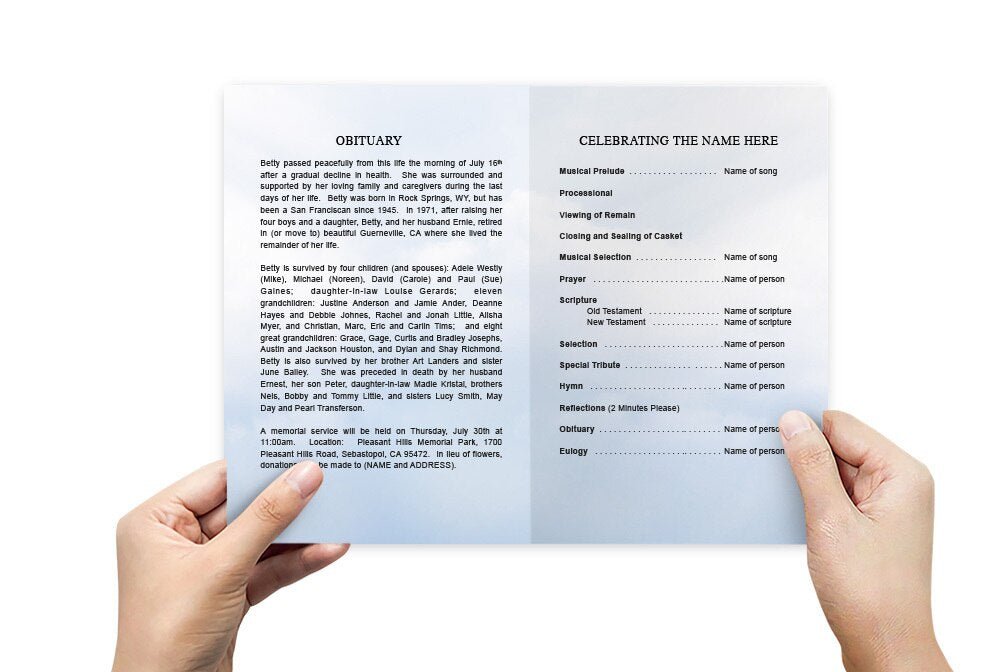Funeral Sympathy Card Messages: Offering Comfort and Support

Sending a sympathy card is a thoughtful way to express your condolences and offer comfort to someone who has lost a loved one. Writing a meaningful message in a funeral sympathy card can help convey your support, empathy, and care during a difficult time. The right words can provide solace to grieving family members and friends, letting them know they are not alone in their grief.
Creating the perfect sympathy card message involves striking a balance between sensitivity and sincerity, ensuring that the message feels personal and heartfelt. Whether you are close to the bereaved or more distant, this guide offers various examples and tips to help you find the right words to express your condolences.
1. General Sympathy Card Messages
For those who may not be as familiar with the family or the deceased but still want to express their condolences, a general sympathy message can be appropriate. These messages are simple, sincere, and respectful.
Examples:
- "I am deeply sorry for your loss. Please know that you are in my thoughts and prayers during this difficult time."
- "Sending you my deepest condolences. May you find comfort in the love and memories shared."
- "Wishing you peace, comfort, and strength during this time of sorrow. My thoughts are with you and your family."
- "I am thinking of you and your family during this time of loss. Please accept my heartfelt sympathies."
- "May the memories of your loved one bring you comfort and peace. My sincere condolences to you and your family."
These messages convey empathy and compassion without being overly detailed or intrusive, making them suitable for any relationship.
2. Sympathy Messages for Close Friends or Family Members
When writing a sympathy card for a close friend or family member, the message can be more personal and specific. You might want to share a memory, express your own feelings of loss, or offer specific support.
Examples:
- "I am heartbroken for you and your family. [Name] was such a wonderful person, and I feel grateful to have known them. If there is anything you need, please do not hesitate to reach out."
- "Words cannot express how deeply sorry I am for your loss. [Name] brought so much joy and light into our lives. Please know that I am here for you, today and always."
- "I am so sorry for your loss. [Name] will forever be in our hearts, and I will always cherish the beautiful memories we shared. I am sending you all my love and support."
- "My heart goes out to you in this time of loss. Losing someone so special is never easy. Please remember that you are surrounded by people who care deeply for you."
- "I wish I could be there to comfort you in person. Please know that I am holding you in my thoughts and prayers, and I am sending all my love to you and your family."
These messages acknowledge the closeness of the relationship and provide emotional support, which can be very comforting to those in mourning.
3. Sympathy Messages with Religious or Spiritual Sentiments
If the bereaved family is religious or spiritual, incorporating a faith-based message can provide comfort and reassurance. These messages often include references to faith, prayer, and the hope of eternal life.
Examples:
- "May God’s peace and love lift you from sorrow. I am praying for you and your family during this time of loss."
- "I am so sorry for your loss. May you find comfort in the arms of the Lord and the promise of eternal life."
- "My thoughts and prayers are with you. May God’s grace give you strength and bring you peace during this difficult time."
- "May the love of God surround you and bring you comfort. [Name] is now in God’s care, and we find solace in knowing they are at peace."
- "Sending you love and prayers. May the memories of [Name] be a blessing, and may their soul rest in peace with the Lord."
These messages offer both spiritual support and encouragement, acknowledging the importance of faith during times of grief.
4. Short and Simple Sympathy Messages
Sometimes, a brief message can be just as meaningful, especially when accompanied by a heartfelt note or a comforting gesture like flowers or a donation in memory of the deceased.
Examples:
- "With deepest sympathy."
- "Thinking of you during this difficult time."
- "My heart goes out to you."
- "Wishing you peace and comfort."
- "Sending love and prayers your way."
Short messages are ideal when you want to convey your condolences without writing a lengthy note. They are simple but sincere.
5. Sympathy Messages with Encouragement and Support
Messages that offer encouragement and support can be very uplifting during a time of grief. These messages can focus on reminding the bereaved of their strength, resilience, and the support system around them.
Examples:
- "I know how strong you are, and I know you will get through this. Please remember that you are not alone—we are all here for you."
- "It’s okay to feel whatever you need to feel right now. Grieving is a process, and we are here to support you every step of the way."
- "I admire your courage during this difficult time. If there is anything I can do to help lighten your burden, please don’t hesitate to ask."
- "Take all the time you need to heal. We are here for you, to listen, to comfort, and to care for you."
- "May you find strength in the love that surrounds you and peace in the memories you cherish. We are all here to lift you up."
These messages can provide a sense of empowerment and reassurance, letting the bereaved know that they have a support network to lean on.
6. Including Personal Memories in Sympathy Messages
Sharing a personal memory of the deceased can add a special touch to a sympathy card. These messages help keep the memory of the loved one alive and show the impact they had on others.
Examples:
- "I will always remember [Name]’s incredible sense of humor and their ability to make everyone around them smile. They were truly one of a kind, and they will be missed dearly."
- "I have so many fond memories of [Name], especially the times we all spent together at [place or event]. They had such a kind heart and brought so much joy to our lives."
- "I feel blessed to have known [Name]. I’ll never forget their generosity and how they always went out of their way to help others. They have left an imprint on all of our hearts."
- "One of my favorite memories of [Name] is when we [describe a memory]. I hope that memory brings you as much comfort as it does me."
- "I’ll always cherish the time I spent with [Name]. They were a wonderful friend, and I’m grateful for all the moments we shared together."
Including a personal memory can make the message more meaningful and remind the bereaved of the positive impact their loved one had on others.
7. Tips for Writing a Funeral Sympathy Card Message
- Be Genuine and Sincere: Write from the heart and avoid clichés or overly formal language. Genuine messages are the most comforting and appreciated.
- Avoid Overly Detailed or Complex Messages: Keep the message clear, simple, and focused on offering support, love, and condolences.
- Respect Cultural and Religious Beliefs: Be mindful of the bereaved family’s cultural and religious beliefs when choosing your words.
- Offer Help and Support: If appropriate, offer specific ways you can help, such as providing meals, helping with arrangements, or simply being there to listen.
- Take Your Time: Writing a sympathy card can be emotional. Take your time to find the right words and express your feelings appropriately.
Funeral Sympathy Card Messages Conclusion
Writing a sympathy card message for a funeral can be challenging, but it is a meaningful way to show your support and care for someone who is grieving. Whether you choose a simple message, a religious verse, a memory, or a note of encouragement, the most important thing is to convey your compassion and empathy. Your words may provide much-needed comfort and strength to those navigating the difficult journey of loss.
© The Funeral Program Site
Funeral Program Templates and Cancer Ribbons





























